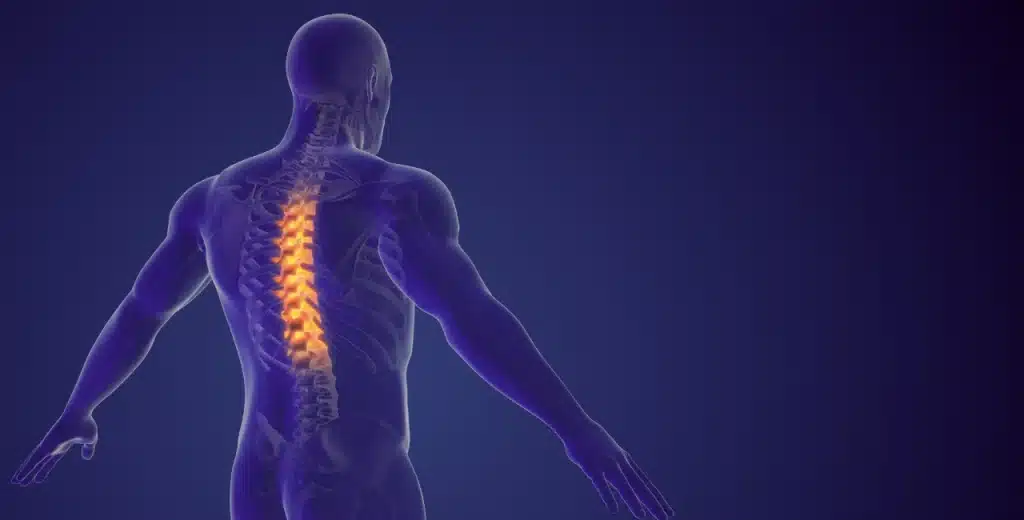Failed Back Surgery Syndrome (FBSS) is a condition that occurs when someone has had one or more back surgeries, yet continues to experience the same or different pain, stiffness, and other issues that either developed after surgery or never went away. While back surgeries can be effective in relieving nerve compression caused by discs or joints, they don’t always address the root cause of the problem. The pain a person experiences can range from mild to severe and may even become worse than before surgery. It is incredibly frustrating for those who go into surgery with the hope of living pain-free but find themselves still struggling afterward. FBSS often affects those who’ve had surgeries to address conditions like herniated discs, spinal stenosis, or degenerative disc disease. It most commonly impacts individuals in middle age or older who already suffer from chronic back pain, though younger patients aren’t immune.
As the leading back pain expert in Delafield, I understand how disheartening FBSS can be. The toll it takes on both the body and mind is significant and many patients come to my clinic expressing high levels of anxiety and frustration that their surgeries haven’t relieved them of their debilitating pain. After surgery, patients expect to regain mobility and quality of life. But when pain persists, it can lead to depression and a sense of hopelessness. You are not alone in this journey. Through personalized care, we can work together to improve strength, flexibility, and function. While surgery didn’t provide the relief you hoped for, there are still pathways to better manage pain and improve your day-to-day life. Your well-being remains at the heart of every step we take.

We love working with patients who are sadly suffering from failed back surgery syndrome (FBSS). In our experience, it’s common for patients to undergo procedures like discectomies or fusions, feel better for a time, and then notice stiffness or the return of their original symptoms, such as nerve pain down the leg. Often, they get stuck in a cycle where their doctor tells them to expect another surgery in a few years. What’s happening in many cases is that the surgeries are creating more scar tissue. This scar tissue forms within the fascia, a strong connective tissue system that can squeeze, compress, and cause ongoing issues with the joints and discs.
Additionally, mechanical factors that led to the initial back pain – such as tight muscles, fascia, and connective tissues – may not have been addressed, especially if the pain developed gradually over time. The way we breathe, stabilize through the core, and engage the hips, glutes, and pelvic floor can also contribute to back issues by creating pressure and compression. If these root causes are left unresolved, the pain will likely persist.
It’s frustrating for patients who undergo surgery hoping for relief, only to still be in pain. But we love working with these individuals, as they are often discouraged and concerned. There is so much we can do to help them move forward, and that’s why we are passionate about treating this group.
Manual therapy, including techniques like myofascial release, can be highly effective in breaking down scar tissue that often forms after back surgery. This scar tissue can compress nerves or restrict mobility, worsening symptoms. Soft tissue mobilization helps to reduce stiffness and improve flexibility in the surrounding muscles and fascia, providing relief from pain.
We also prioritize patient education. We teach proper body mechanics, posture, and breathing techniques to prevent further injury and manage symptoms more effectively, helping patients regain control and improve their quality of life.
Simply Complete The Short Form and We’ll Email You Your FREE REPORT

Are you unsure if physical therapy is right for you? Would you prefer to talk with a PT before making a decision? All you have to do is click the link below to fill out a simple form.
If you’re not quite ready to book an appointment yet and have some questions you would like answered first, click the link below to complete the form.
Balance Within Integrative Physical Therapy
524 Milwaukee Street, Suite 308, Delafield, WI 53018
Monday – Thursday 7:30am – 7:00pm
Friday 7:30am – 4:00pm
Saturday / After Hours By Appointment
Sunday Closed
Specially selected guest speaker on TMJ4’s “Morning Blend” show giving advice on natural injury treatments.
Winners of Lake Country Family Fun for 4 years running, helping thousands of people in their local community to quickly recover from injuries
To speak to Lake Country’s Back Pain Experts, Drs. Jereme and Sarah Trunk, call us at (262) 264-8701
Or Visit our clinic for FREE in a Discovery Visit